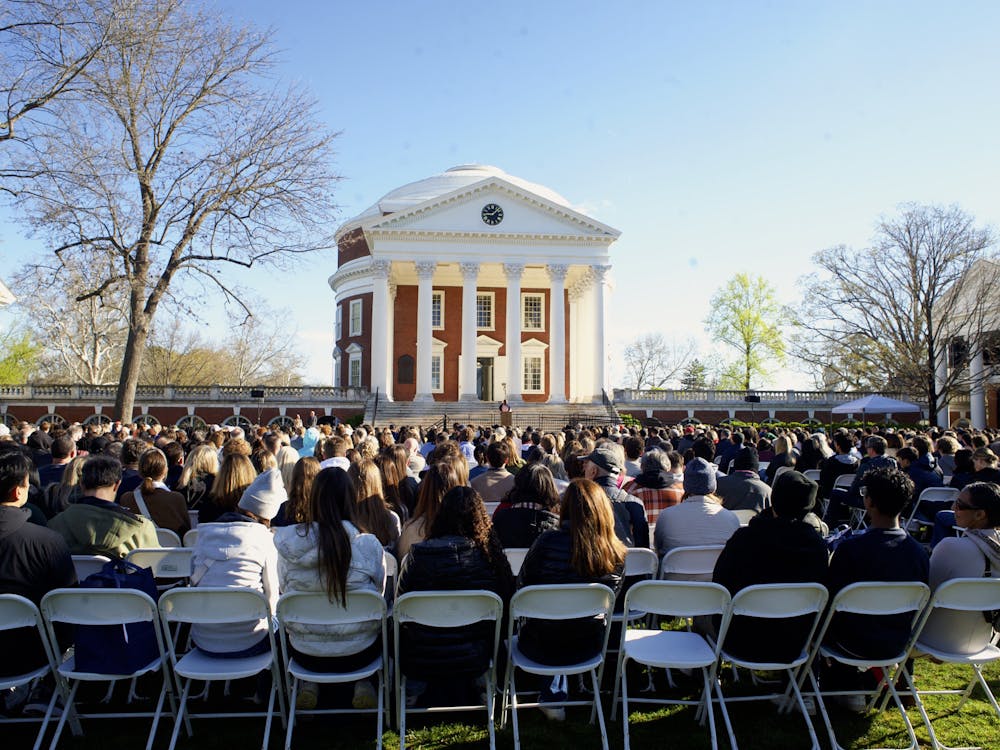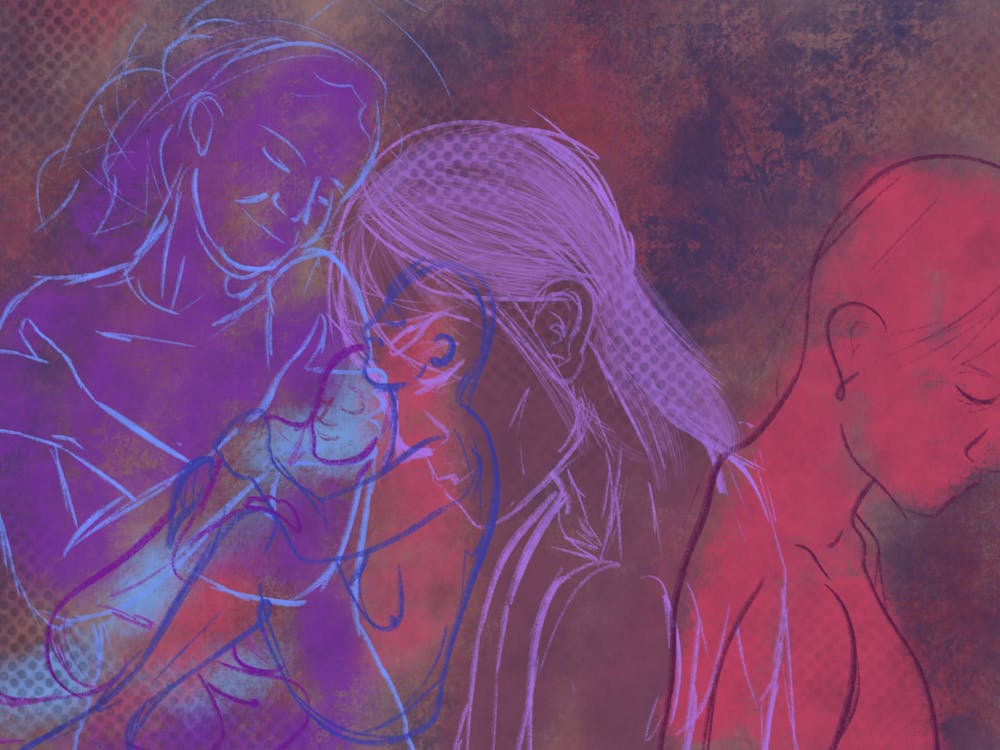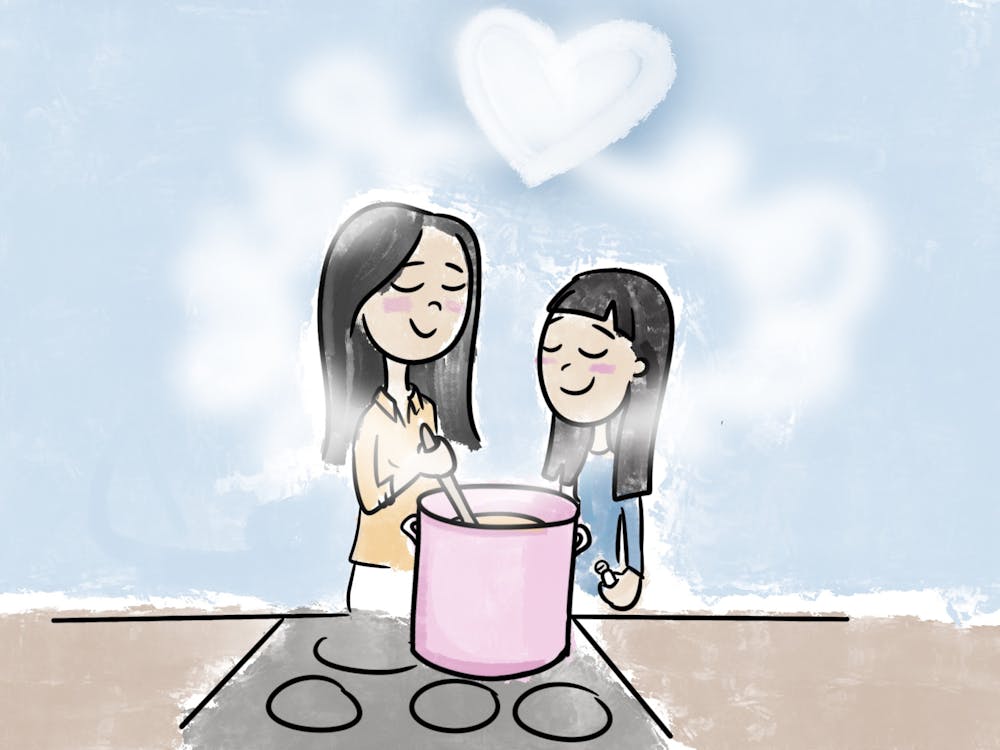(This is the third in a four-part series about dating and relationships at the University.)
Niehn To is Vietnamese but has never dated another Vietnamese guy.
Still, she didn't hesitate four years ago when she began dating her boyfriend Stephen LeGarde, a fellow fourth-year College student who is white. Her family, on the other hand, was a little more apprehensive.
"With my family, it was somewhat of an issue because they wanted me to marry within my own race. But the more exposure they had to Stephen, the more they began to realize that he was a good person, so they eventually accepted it," said Niehn.
At the University, Stephen and Niehn, who have been dating since high school, say they have never had a problem being accepted by their diverse circle of friends.
But for other University students in interracial relationships, their peers do not always seem so accepting. Ameet Habib, a second-year College student who is Bengali, is still sometimes surprised by people's reactions.
"When people ask me about my girlfriend and I show them her picture, the first thing they say is 'Oh, she's black?'" he said.
Other interracial couples agree that such a reaction usually indicates surprise, not disapproval. Still, it can be uncomfortable.
Third-year College student Jessica Coleman is white, while her boyfriend, fifth-year College student Winston Taitt, is of a mixed background - half black and half Puerto Rican.
She said they have never experienced any instances of blatant racism, but she sometimes feels it lurking beneath the surface.
"When we pass, people are forced to evaluate their own issues with race and that is sometimes evident in their faces," Jessica said. "I think it is almost empowering that me living my life has an effect on other people."
Winston, who has dated Jessica for over a year, never questioned his parents' reaction for a second.
"I am biracial, so it would be a contradiction of my very being for my parents to be adverse to my dating someone of another heritage," he said.
In fact, he attributes his own open-mindedness to his parents. "I have been fortunate enough to be surrounded by some very enlightened people, beginning with my parents."
Jessica says that getting to know Winston's friends was a very eye-opening experience. "Unconsciously, I wasn't spending time with black people, but by dating Winston, I became friends with people of a lot of races and that was a very good thing," she said.
Another couple, however, said they have gotten their fair share of stares.
Ms. Allen, a first-year College student, is black, while Patrick, a third year, is white. Like other interracial couples at this tradition-infused southern university, Ms. Allen and Patrick - who requested their full names not be used - are not the norm. But they have learned to get past that and in the process, they have learned a lot from each other.
"It's so odd to us sometimes because we don't really think about it anymore. We'll wonder what they are staring at, then we are like, 'Oh that's right,'" she said.
Ms. Allen, who grew up in a traditional southern black family, experienced similar worries. "I was a little nervous that his parents would not approve," she said. Though her parents always had been supportive of her interracial relationships, a past boyfriend's parents had had a problem with it.
"This was the only reason I was ever hesitant to start dating Patrick," she added.
Patrick and Ms. Allen both agree that their friends might tease them a little, but this joking is never serious.
"A friend e-mailed me one day, and said 'Man, did you hear about the outbreak?' I was like 'No, what? Meningitis?' I started laughing when he responded, 'No, jungle fever.'"
Learning the other's culture
These couples attribute many of their differences to cultural conflicts rather than racial ones.
"When Niehn graduates, she plans to get a job and live at home. It is difficult for her to understand why I would want to pay money to live alone, when my parents have all this extra space," said Stephen, whose family is from northern Virginia.
He says these types of cultural differences do not really provide a right answer - both partners are forced to accept the other as they are.
"It's just a matter of how much work you are willing to put into a relationship to find some sort of common ground," Ameet said.
Stephen agrees that the challenges are worth overcoming. "I love Niehn, so I am interested in learning about her culture," he said.
For Ms. Allen, although she was eager to learn about Patrick's background, going to Catholic mass with him for the first time was a bit of a culture shock.
"I'm Baptist, so I am used to the music going, dancing and everyone completely dressed up," she said. "But at his church, I can go casual and the mood is very calm; it wasn't like church to me."
Patrick admits to teasing her about the Baptist thing.
"I saw these churches on television where everyone was yelling 'hallelujah,' but I never knew they actually existed," he joked.
In this way, sharing in another's culture can not only be fun, but truly important.
"Jessica and I went to the Million Family March this year together. The event was 90 percent black, but there was no hostility," Winston said.
Facing and overcoming challenges
In this day and age, it might be assumed that these couples would be readily received, but this is not always the case. Ameet and his girlfriend Tr




